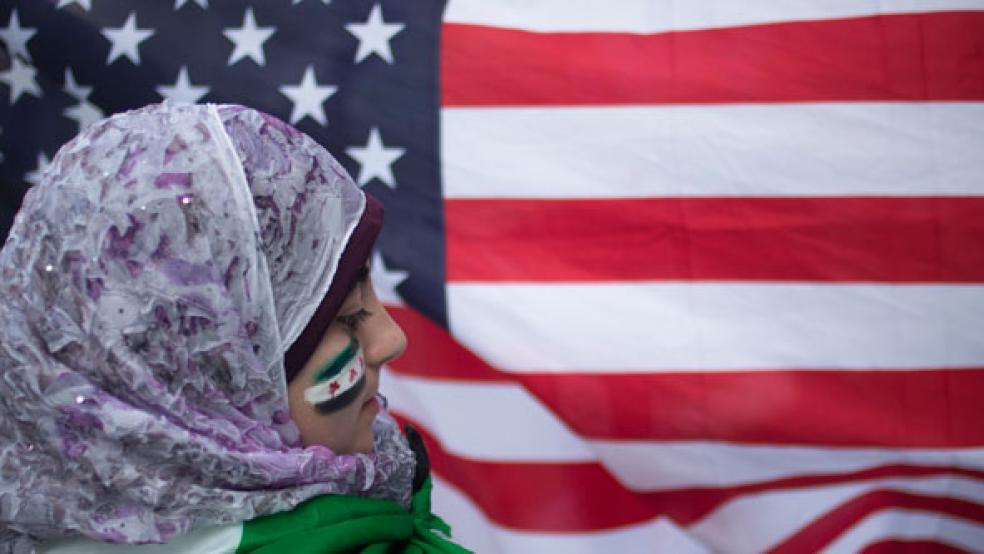Syria has reportedly agreed to give up control of its chemical weapons cache to an international monitor, likely bringing an end to a three-month standoff with the United States.
Syrian President Bashar al-Assad got what he wanted: The United States is now unlikely to meddle in the Syrian civil war. President Obama in part got what he wanted: Syria will no longer be able to use chemical weapons.
But one of the president’s two goals remains unaccomplished: Assad is still the president of Syria, and the civil war is going to continue.
So what happens next?
Lost in the debate over the use of chemical weapons is that more than 104,000 people have died in the war: Chemical weapons killed just one percent of the dead. This toll is likely to rise as Assad continues to use conventional weapons to crush the rebel factions seeking to depose him.
The United States must now decide what, if anything, it’s willing to do to accomplish the president’s second objective. They have five options, but only one guarantees Assad will no longer be president of Syria. And that option is simply unpalatable to the American public.
1) Continue to arm the rebels. While the flow of arms to rebel groups has slowed in recent weeks, it has not stopped. Sen. John McCain recently said the president vowed to increase supplies.
But this approach is problematic for a number of reasons. First, it’s unknown which rebels can be trusted, as some are openly hostile to the United States. They are split into three distinct rival factions, with varying visions for the future of the country.
Second, there’s no guarantee that the rebels would topple Assad. Many of them are skilled fighters, but recent reports indicate that Assad has them on the run. It’s anyone’s guess as to whether an increase in military aid from the United States would turn the tide of the war.
2) Try to broker peace. Plans for a peace conference and Assad were made but have long been abandoned. Perhaps after living under the threat of U.S. missile strikes for three months, Assad might be willing to revisit them.
Of course, this does not accomplish the president’s goal of unseating Assad. But it could potentially end the bloodshed there, at least temporarily.
3) Send in a U.N. peacekeeping force. Somalia, Rwanda and Kosovo proved that U.N. peacekeepers cannot guarantee peace, but they would be a show of force by a unified international community. Their presence could moderate the brutal violence of the war.
Of course, peacekeepers do not accomplish the president’s goal of removing Assad. And they’d have to be sanctioned by the United Nations, requiring Russia and China’s approval, which is no sure bet.
4) Send in U.S. troops. Obama and his advisers have repeatedly said that no American troops would fight in Syria. But the only way to guarantee Assad is no longer the president of Syria is for the U.S. military to take care of it.
The public would be up in arms over American “boots on the ground,” and troop deployments would be hard to pay for as DOD tightens its belt. But American soldiers give the president the best chance.
5) Do nothing. The public has grown tired of wars, and polls indicate that there was little backing for air strikes, let alone a full-blown war. In this scenario, the rebels are likely to fall and Assad remains in power. But sometimes a strong-armed dictator is the price a country pays for stability.






